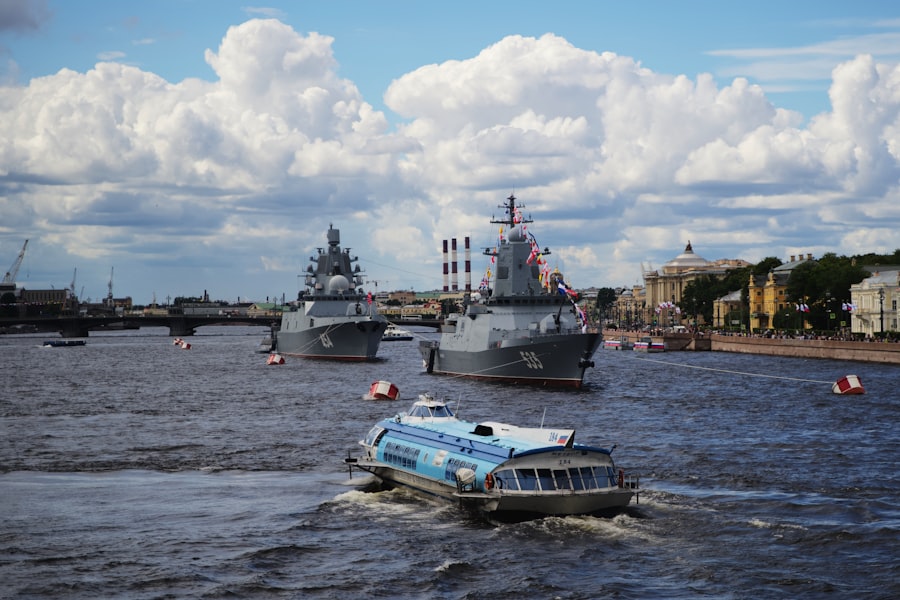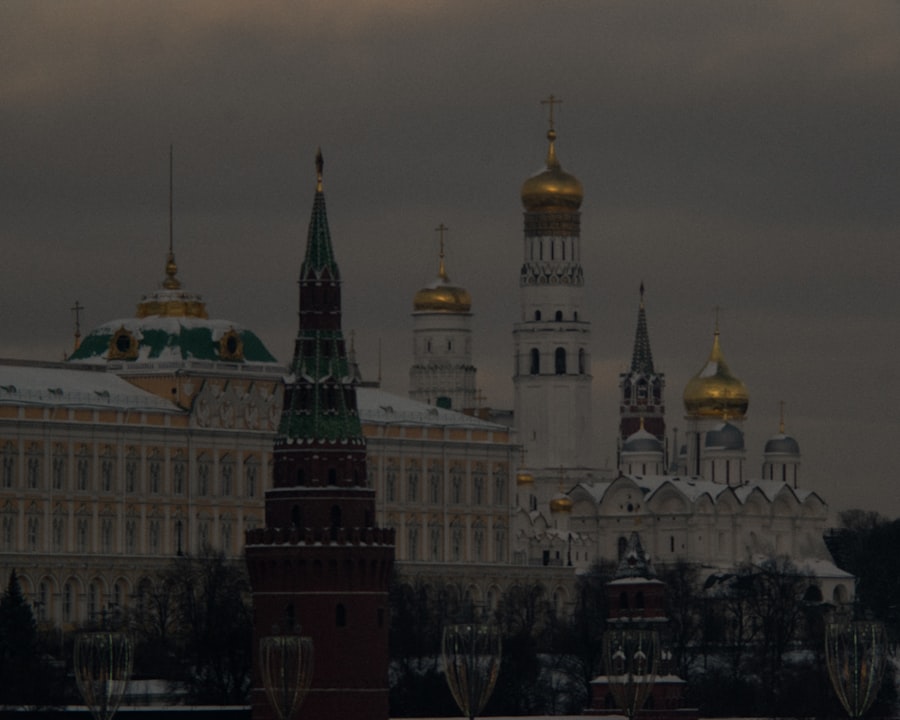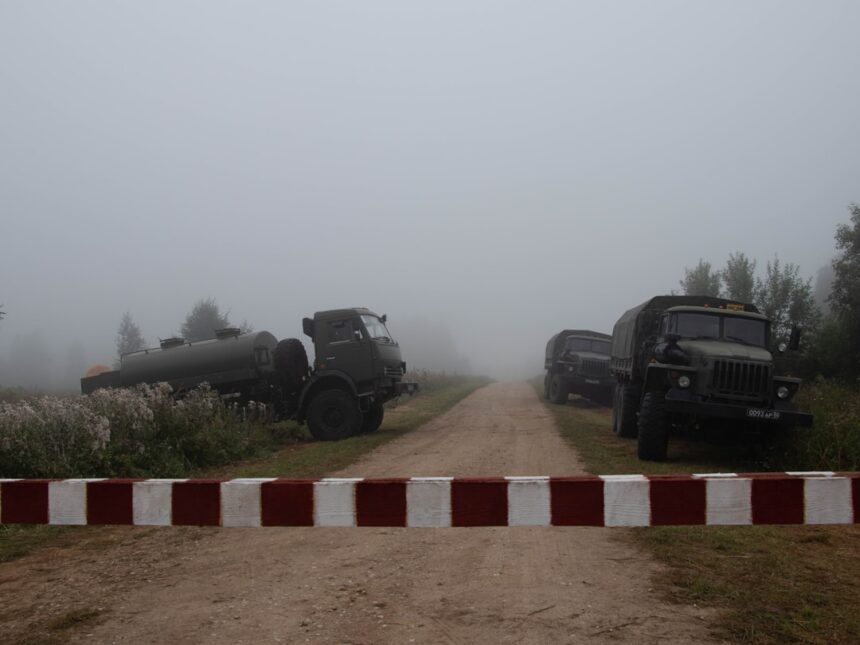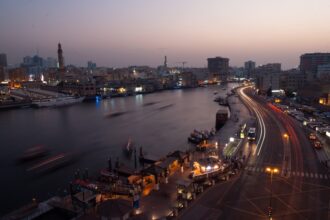Corruption within the Russian military has emerged as a significant issue, undermining the effectiveness and integrity of one of the world’s largest armed forces. This pervasive problem not only affects military operations but also has far-reaching implications for national security and governance. The intertwining of military and political interests has created an environment where corruption flourishes, leading to a lack of accountability and transparency.
As Russia continues to assert its influence on the global stage, understanding the dynamics of military corruption becomes crucial for comprehending the broader implications for both domestic and international affairs. The Russian military, with its vast resources and strategic importance, has been plagued by various forms of corruption, including embezzlement, bribery, and procurement fraud. These corrupt practices have not only eroded trust within the ranks but have also compromised the military’s operational readiness.
As the nation grapples with its geopolitical ambitions, the need to address these issues becomes increasingly urgent. The following sections will delve into the historical context of corruption in the Russian military, its impact on effectiveness and readiness, and the broader implications for society and politics.
Key Takeaways
- Russian military corruption has a long history and continues to be a significant issue in the country.
- Corruption in the Russian military has had a detrimental impact on military effectiveness and readiness.
- The economic costs of corruption in the military have been substantial, leading to wastage of resources and inefficiency.
- Human rights violations and abuse of power have been prevalent in the Russian military due to corruption.
- Efforts to combat corruption in the Russian military have been made, but more transparency and accountability are needed for real change.
Historical Context of Corruption in the Russian Military
The roots of corruption in the Russian military can be traced back to the Soviet era, where a culture of secrecy and patronage was deeply embedded within the armed forces. During this time, the military was often seen as a privileged institution, with access to resources that were not available to the general populace. This created an environment ripe for corruption, as officials exploited their positions for personal gain.
The collapse of the Soviet Union in 1991 further exacerbated these issues, as the transition to a market economy led to increased competition for resources and opportunities for graft. In the post-Soviet era, corruption within the military became more pronounced as economic instability and political turmoil took hold. The privatization of state assets and the rise of oligarchs created a new landscape where military officials could engage in corrupt practices with relative impunity.
The lack of oversight and accountability allowed for widespread embezzlement and mismanagement of funds, which severely impacted military modernization efforts. As Russia sought to rebuild its military capabilities in the 21st century, these entrenched corrupt practices continued to hinder progress.
Impact on Military Effectiveness and Readiness

The ramifications of corruption within the Russian military extend far beyond financial losses; they directly affect operational effectiveness and readiness. When funds intended for training, equipment maintenance, and personnel welfare are siphoned off through corrupt practices, the military’s ability to respond to threats diminishes significantly. Reports have indicated that units often lack essential supplies and equipment due to misappropriated funds, leading to a decline in morale among troops who feel undervalued and unsupported.
Moreover, corruption fosters a culture of complacency within the ranks. When promotions and assignments are influenced by bribery rather than merit, it undermines the professionalism of the armed forces. This can result in poorly trained leaders making critical decisions that jeopardize missions and endanger lives.
As a consequence, the Russian military’s operational readiness is compromised, raising concerns about its ability to effectively respond to both domestic and international challenges.
Economic Costs of Corruption in the Military
| Country | Annual Economic Cost (in billions) | Percentage of Military Budget |
|---|---|---|
| United States | 10.5 | 5% |
| Russia | 15.2 | 12% |
| China | 8.9 | 8% |
| India | 6.3 | 7% |
The economic implications of military corruption in Russia are staggering. Estimates suggest that billions of dollars are lost each year due to corrupt practices within the defense sector. These funds could otherwise be allocated towards essential areas such as modernization, research and development, and improving soldier welfare.
Instead, they are funneled into the pockets of corrupt officials and contractors who prioritize personal gain over national security. The diversion of resources not only hampers military effectiveness but also has broader economic repercussions for Russia as a whole. A weakened military can lead to increased instability in regions where Russia has strategic interests, potentially resulting in costly conflicts that drain national resources further.
Additionally, corruption undermines public trust in government institutions, leading to disillusionment among citizens who expect their leaders to prioritize national security over personal enrichment.
Human Rights Violations and Abuse of Power
Corruption within the Russian military is often accompanied by human rights violations and abuses of power. Instances of hazing, mistreatment of conscripts, and exploitation of vulnerable populations have been reported, highlighting a culture where accountability is lacking. Corrupt practices can create an environment where those in power feel emboldened to act with impunity, leading to abuses that go unchecked.
Moreover, the intertwining of military corruption with political interests can exacerbate human rights violations. When military leaders prioritize loyalty over competence, it can result in a disregard for ethical standards and human rights norms. This not only affects service members but also impacts civilian populations in conflict zones where Russian forces operate.
The consequences are dire, as communities suffer from violence and repression while those responsible evade justice.
International Implications of Russian Military Corruption

The implications of corruption within the Russian military extend beyond national borders, affecting international relations and security dynamics. As Russia seeks to project power on the global stage, its military’s compromised effectiveness raises questions about its ability to fulfill its strategic objectives. This uncertainty can lead to increased tensions with neighboring countries and global powers alike.
Furthermore, military corruption can undermine international cooperation efforts aimed at addressing security challenges such as terrorism or regional conflicts. When trust is eroded due to allegations of corruption, it becomes increasingly difficult for nations to collaborate effectively on defense initiatives or joint operations. This can create a vacuum that may be exploited by adversaries seeking to destabilize regions or challenge international norms.
Efforts to Combat Corruption in the Russian Military
In response to growing concerns about corruption within its ranks, the Russian government has initiated various efforts aimed at combating these practices. Legislative measures have been introduced to enhance oversight and accountability within the defense sector. Additionally, anti-corruption campaigns have been launched to raise awareness about the detrimental effects of graft on military effectiveness.
However, these efforts have often been met with skepticism due to a lack of genuine political will to address systemic issues. Many observers argue that without significant reforms that target the root causes of corruption—such as patronage networks and lack of transparency—these initiatives may merely serve as window dressing rather than effecting real change.
Transparency and Accountability in the Russian Military
Achieving transparency and accountability within the Russian military is essential for addressing corruption effectively. Implementing robust mechanisms for oversight can help ensure that resources are allocated appropriately and that those who engage in corrupt practices are held accountable for their actions. This includes establishing independent bodies tasked with monitoring defense spending and procurement processes.
Moreover, fostering a culture of integrity within the armed forces is crucial for long-term change. Encouraging whistleblowing and protecting those who expose corrupt practices can help create an environment where ethical behavior is valued over personal gain. By prioritizing transparency and accountability, Russia can begin to rebuild trust within its military ranks and among its citizens.
Implications for Russian Society and Politics
The pervasive nature of military corruption has profound implications for Russian society and politics. As citizens witness ongoing scandals involving military officials, public trust in government institutions erodes further. This disillusionment can lead to increased social unrest as people demand accountability from their leaders.
Additionally, corruption within the military can perpetuate a cycle of impunity that extends beyond defense institutions. When individuals see that those in power are not held accountable for their actions, it can foster a sense of hopelessness regarding governance as a whole. This discontent may manifest in various forms, from protests demanding reform to calls for greater political change.
Future Prospects for Addressing Military Corruption
Looking ahead, addressing corruption within the Russian military will require sustained effort from both government officials and civil society. While recent initiatives signal a recognition of the problem, meaningful reform will necessitate a commitment to transparency and accountability at all levels. Engaging citizens in discussions about governance and encouraging civic participation can help create pressure for change.
Moreover, international cooperation may play a role in addressing these issues. By collaborating with other nations on anti-corruption initiatives and sharing best practices, Russia can benefit from external expertise while demonstrating its commitment to reforming its military institutions. Ultimately, fostering a culture that prioritizes integrity over graft will be essential for ensuring a more effective and accountable armed forces.
The Need for Continued Attention and Action
In conclusion, military corruption in Russia poses significant challenges that extend beyond financial losses; it undermines national security, erodes public trust, and perpetuates human rights violations. As Russia navigates an increasingly complex geopolitical landscape, addressing these issues must remain a priority for both government officials and civil society alike. Continued attention and action are necessary to combat corruption effectively and foster a more transparent and accountable military institution.
The path forward will require not only legislative reforms but also a cultural shift within the armed forces that values integrity over personal gain. By prioritizing transparency and accountability, Russia can begin to rebuild trust among its citizens while enhancing its military effectiveness on the global stage.
In examining the long-term effects of Russian military corruption, it’s essential to consider the broader implications on global security dynamics. An insightful article that delves into similar themes is available on In The War Room. This piece explores how systemic corruption within military structures can undermine operational effectiveness and strategic stability, offering a comprehensive analysis that complements the discussion on Russian military issues. By understanding these patterns, we can better anticipate potential challenges and develop strategies to mitigate their impact on international peace and security.
WATCH NOW! 🎖️ Plot Twist: Russia’s Military Is Being Eaten Alive By Its Own Corruption
FAQs
What are the long-term effects of Russian military corruption?
The long-term effects of Russian military corruption include weakened national security, decreased military effectiveness, and erosion of public trust in the government and military institutions.
How does Russian military corruption impact national security?
Russian military corruption can compromise the country’s ability to defend itself and its interests, as funds intended for military equipment, training, and operations may be misappropriated or embezzled.
What are the consequences of decreased military effectiveness due to corruption?
Decreased military effectiveness can lead to a lack of readiness, outdated equipment, and poorly trained personnel, which can ultimately undermine Russia’s ability to respond to security threats and crises.
How does corruption in the Russian military affect public trust?
Corruption in the Russian military can erode public trust in the government and military institutions, leading to disillusionment, decreased support for defense spending, and a lack of confidence in the country’s ability to protect its citizens.
What measures can be taken to address Russian military corruption and its long-term effects?
Addressing Russian military corruption requires comprehensive reforms, including increased transparency, accountability, and oversight, as well as efforts to promote ethical behavior and combat impunity within the military establishment.



